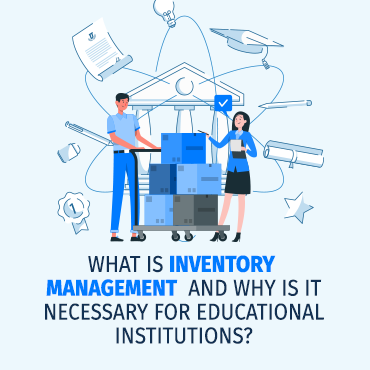Table of Contents:
Why Your Campus Can’t Do Without a College ERP?
How to Choose the Best ERP for Your College
Essential Features of the Best College ERP
What Makes Camu Stand Out
College ERP Costs: What to Expect
Making ERP Work for Everyone
Frequently Asked Questions and Answers to Know Before Choosing
A College ERP is an integrated software system that automates and centralizes academic, administrative, and financial operations for higher education institutions. Although on-premises deployments are still used, the majority of top institutions now use cloud-based ERPs due to their scalability and flexibility.
Why Your Campus Can’t Do Without a College ERP?
Real-time efficiency eliminates the delays and errors of manual labour with automation, transparency, compliance, and smooth communication provided by college ERP software.
Fee collection - Finished in hours as opposed to weeks.
Attendance -Auto-tracked with predictive alerts.
Fees - Instant collection and reconciliation.
Exams - Streamlined scheduling and fair evaluation.
Analytics - Actionable insights for leadership.
How to Choose the Best ERP for Your College
Identify the needs of every department.
Evaluate vendors based on scalability and feature depth.
Evaluate for future-readiness (integrations, mobile-first).
Guarantee certified security and compliance.
Ensure that staff and teacher adoption ease is the top priority.
Essential Features of the Best College ERP
Admissions Management
Why it matters: A smooth admissions process fosters trust between parents and students.
What to look for: Real-time visibility throughout the entire process, from applications and enquiries to screening, enrolment, and selection.
Choice-Based Credit System (CBCS)
Why it matters: Provides students the freedom to choose what they learn, how they learn, what they learn, and from whom they learn.
What to look for: Credit limits and prerequisites are automatically validated; scheduling is conflict-free.
Outcome-Based Education (OBE)
Why it matters: It makes accreditation simple and increases graduate employability by aligning teaching, learning, and evaluation with expected outcomes.
What to look for: Tools that map curriculum to learning objectives, track outcome attainment, and produce reports that are suitable for accreditation with minimum effort.
Examinations Management
Why it matters: Fair and effective examinations are essential to academic integrity.
What to look for: Support for multiple exam modes, automated grading normalization, configurable rules, and anonymized evaluation.
Fee Management
Why it matters: Smooth collections keep finances stable and parents stress-free.
What to look for: Configurable fee structures, payment gateway options, automated reconciliation, and reporting.
Attendance Management
Why it matters: Promotes academic rules compliance and provides insights into engagement.
What to look for: Options for biometric, geofenced, RFID, QR, or CCTV-based capture, with real-time dashboards.
Mobile Apps
Why it matters: Because stakeholders expect quick access to academic content and approvals.
What to look for: Apps for administrators, parents, teachers, and students with rich features.
Certified Privacy and Data Security
Why this matters: Guarantees regulatory compliance, fosters trust, and safeguards private information about students, instructors, and institutions.
What to search for: ERP software with strong international security standards, GDPR compliance, and ISO 27001 certification.
Integration with External Products
Why this matters: Removes operational silos and enables institutions to work with best-in-class tools.
What to look for: Plug-and-play, standards-based compatibility with analytics platforms, HRMS, finance systems, and other vital third-party apps.
What Makes Camu Stand Out
| Feature | Camu | Others |
| Integrated Platform | Natively integrated modules with seamless data flow | Loosely connected, no real-time data exchange |
| Complete Lifecycle | Single source of truth from Admissions to Graduation | Duplicate entries, siloed records |
| Unified LMS | Academic + admin data unified, SCORM & LTI compliant | No holistic academic view |
| Exam Management | Configurable rules, multiple modes, anonymized evaluation, dual marks entry, normalization | Limited configurability |
| CBCS | Full-featured CBCS with automated validation of prerequisites and limits; conflict-free scheduling | Basic registration, manual conflict resolution |
| OBE | Outcome mapping, rubrics, and Bloom’s Taxonomy support | Limited outcome traceability |
| Accreditations | Automated QA workflows, one-click NAAC/NBA/NIRF/AQAR reports | No automated reports. |
| Campus Facilities | Library, HRMS, Hostel, Transport, Assets, Gate Pass | Basic features only |
| Advanced Analytics | Power BI integration, AI insights, customizable reports | Minimal static reporting |
| Third-Party Integrations | Standards-based interoperability | Limited, custom-only |
| Data Security | ISO 27001 certified, GDPR compliant | Often uncertified |
| Mobile-First | Feature-rich apps for all stakeholders | Limited mobile functionality |
College ERP Costs: What to Expect
The degree to which college ERP software removes inefficiencies and avoids unforeseen costs, not just licensing fees determines the real price of the purchase.
The pricing is influenced by a number of factors, such as modules, user base, and deployment strategy (cloud vs. on-premises). Additionally, keep an eye out for hidden costs like support, training, and customization, as these can significantly impact the total cost of ownership.
Key factors that affect cost:
Modules chosen: Add-ons like OBE, CBCS, or hostel administration broaden the reach, while core functions like admissions and exams are often bundled together.
Number of users: Generally speaking, pricing increases with the number of students, instructors, and administrative personnel.
Deployment model: While on-premise ERP requires a significant upfront investment in servers and IT staff, cloud ERP usually offers subscription-based, predictable pricing.
Unexpected expenses to be aware of:
Implementation: Unexpected costs might be increased by prolonged schedules or poor project management.
Training: Staff members find it difficult to adapt without adequate help in onboarding, requiring repeated training.
Customization: To comply with academic norms, basic ERPs frequently require expensive modifications to accommodate the institution’s processes.
Support and upgrades: Some suppliers charge extra for maintenance, bug patches, or compliance revisions.
By choosing a transparent, cloud-first solution like camu, institutions can steer clear of these risks and benefit from a predictable subscription model that includes built-in setup, training, and compliance upgrades.
Making ERP Work for Everyone
The first thing that comes to mind when universities consider ERP is typically, "How long will it take to get it up and running?". In reality, getting people to adopt it is more difficult than the technology itself. Therefore, the ideal ERP isn't only about functionality; it's also about how seamlessly your staff, instructors, and students can adopt it.
Camu distinguishes itself in that implementation as it is our strength and competitive advantage rather than merely a service add-on.
Phased Rollouts: We customize the schedule for every institution, beginning with essential modules (such as admissions or examinations) and progressively adding more to cause the least amount of interruption.
Dedicated Success Teams - Right from the beginning, Camu deploys onboarding experts to collaborate with faculty and administration.
Practical Training: We offer more than just technical instruction; we also mentor professors and staff to adopt digital-first practices, facilitating a seamless and permanent transition.
Change Management - With our handholding, stakeholders quickly adapt with the use of role-based dashboards, user-friendly mobile apps, and clear communication.
Proven Methodology – Trusted by 250+ institutions, of which the Vice Chancellor of Mohan Babu University shared his experience with camu as follows,
“After positioning a technical team in-house, all requirements were met within the first year, with classes, timetables, examinations, and results running smoothly demonstrating effective ERP implementation.”
Frequently Asked Questions and Answers to Know Before Choosing
Why does a college need an ERP system?
A college ERP software streamlines academic and administrative processes, improves data accuracy, enhances the student experience, and saves time and operational costs. It replaces manual workflows with real-time, centralized management across departments.
What should I look for in the best college ERP?
Choose a solution with end-to-end integration, support for academic models like CBCS and OBE, robust exam and fee management, certified data security, and mobile-first access for students, faculty, and administrators.
How do I know if the ERP will fit my institution’s needs?
Check if the ERP covers the complete student lifecycle — from admissions to graduation — and can adapt to your college’s unique workflows without requiring heavy customization.
How important is accreditation support in ERP?
Extremely important. The best college ERP should generate accreditation-ready reports for NAAC, NBA, or NIRF and automate quality workflows, drastically reducing manual effort.
Should integrations be a key factor when evaluating an ERP?
Yes. Ensure the ERP supports standards-based integration with payment gateways, HRMS, analytics tools, and other third-party systems for seamless operations.
Is mobile support really necessary for a college ERP?
Absolutely. Students, faculty, and administrators expect to manage attendance, grades, communication, and approvals on the go. Mobile apps are essential for engagement and timely decision-making.
How do I evaluate data security in an ERP?
Look for internationally recognized certifications like ISO 27001 and compliance with data privacy standards such as GDPR, ensuring that sensitive academic and personal data is fully protected.
How long does it take to implement a college ERP?
Implementation time varies by institution size and modules. The best ERP solutions offer quick deployment with minimal disruption to ongoing academic and administrative activities.
What kind of training and support should I expect?
Top college ERP software provides role-based training, detailed documentation, and responsive support to ensure faculty, staff, and students adopt the system efficiently.
How can I measure the ROI of an ERP?
ROI is seen in reduced manual work, faster decision-making through accurate data, improved student experience, enhanced compliance, and overall operational efficiency.





